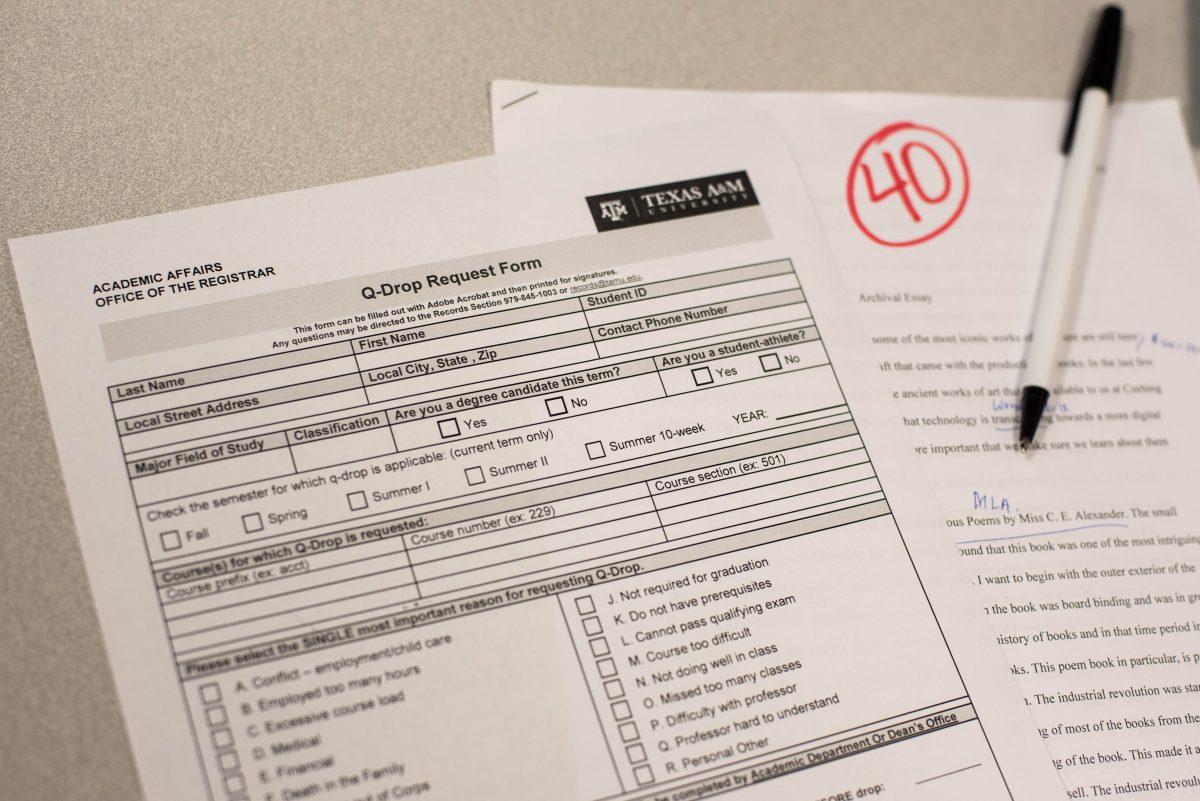As deadlines for Q-drops and grading system changes approach, students and advisors take certain factors into consideration before making decisions.
The deadline for Q-drops without penalty is Friday, April 24 at 5 p.m., and the deadline for changing the grading system to Satisfactory or Unsatisfactory (S/U) is Tuesday, April 28 at 5 p.m. However, there is a petition started by computer science junior Samarth Dave to move the pass/fail deadline to after final exams. As of April 23, there are over 7,700 signatures.
Allison Rivera, Director of Advising for the College of Liberal Arts, said it is essential for students to discuss their academic progress with their professors and academic advisor before making any decisions.
“Your academic advisor will also be able to tell you what impact a Q-drop will have on your progress toward degree completion,” Rivera said. “I [also] require that any student with funding discuss this with a financial aid advisor before they drop a course so that they understand the financial consequences.”
Rivera said academic advisors should be students’ first resource when making decisions about grade option changes because they will provide students with important information, such as how Satisfactory/Unsatisfactory grades may affect applications to professional schools. Advisors in the Office for Professional School Advising may be able to provide further information to students.
“Many students do not understand that a Satisfactory grade only reflects A, B and C grades,” Rivera said. “For some courses, a D may still apply to a student’s degree plan, for others it will not. You need to determine if pre-requisite courses must be taken for a letter grade at your [professional] programs of interest.”
One way biology sophomore Archana Murthy said she tries to avoid Q-drops is by communicating with professors.
“I strongly encourage you to talk to your professor in an open way if you’re [struggling],” Murthy said. “Teachers want to help students successfully finish the semester and are willing to work with you to help get the grade you need.”
While Murthy said students should do what is best for them, even if that means Q-dropping a class, she also said no one should let fear stand in the way of trying to advocate for a better option.
“It can be frustrating to work hard all semester at a class and have to throw it away because of the times we’re in,” Murthy said. “If you are able to be upfront about your situation, I would say that a lot of the need for a Q-drop will be removed. You also have options in between failing and a Q-drop, like changing to S/U.”
Ryan Randle, history and English senior, said students should take advantage of the opportunity to change grades to S/U if they feel they are having trouble with their classes.
“If you’re still debating on whether or not to do it and do not have any plans on going to professional school [or] are not actively trying to pull your grades up, you should take the courses S/U,” Randle said. “I have all of my courses for this semester on the Satisfactory/Unsatisfactory grading system since it is my last semester. For classes that it looks like I will be getting an A in, I will switch it back closer to the end of the semester.”
For some, like Murthy, achieving certain letter grades is a good motivation to continue working through what may seem like tempting amounts of free time in social isolation.
“I decided that since I worked most of the semester for a letter grade, I wanted to finish the semester out with a letter grade,” Murthy said.
In the end, no matter what students choose to do, Murthy said they should not only think about the immediate impact on their grades but also examine the long-term effects.
“How may this change your overall GPA, graduate school admissions [and] ability to graduate? How may this affect you mentally?” Murthy said. “After taking all these factors into consideration, you need to figure out what is most important, and then do what is best for you.”
Advice on decisions about grading system changes
April 23, 2020
0
Donate to The Battalion
Your donation will support the student journalists of Texas A&M University - College Station. Your contribution will allow us to purchase equipment and cover our annual website hosting costs.








